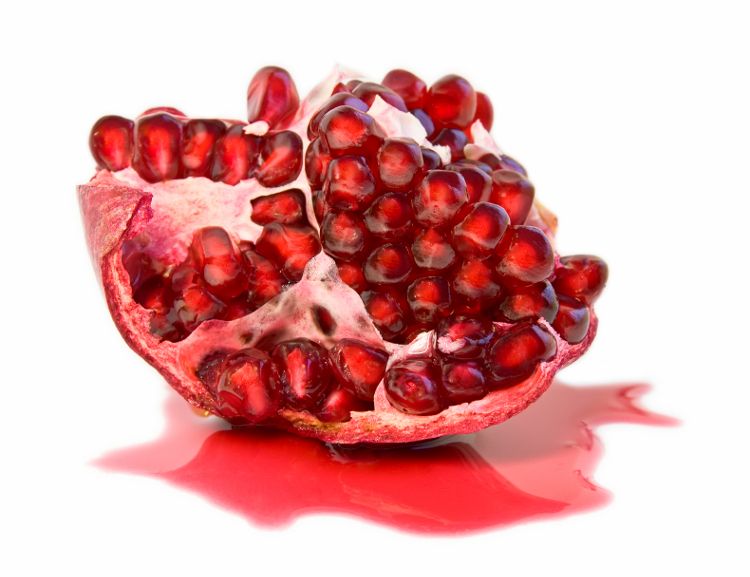Animal study finds that branded pomegranate extract may alleviate the impacts of fructose consumption on liver metabolism
A recent preclinical study found that supplementation with a branded pomegranate extract called Pomanox, from Euromed, may support liver health and alleviate fructose-induced metabolic impairment.
Photo © iStockphoto.com/-AZ-

A recent preclinical study1 found that supplementation with a branded pomegranate extract (Pomanox from Euromed based in Mollet del Vallès, Spain) may support liver health and alleviate fructose-induced metabolic impairment. According to the researchers, scientific literature shows that there is a connection between fructose intake metabolic impairments associated with metabolic syndrome, namely obesity, adiposity, dyslipidemia, non-alcoholic fatty liver disease (NAFLD), insulin resistance, type 2 diabetes mellitus (T2DM), gout, hyperuricemia and cardiometabolic diseases. These impairments are likely related to disturbances of liver metabolism.
In the study, 19 rats fed on a basal commercial diet were assigned to receive drinking water (control), 30% fructose in drinking water, or 30% fructose solution with 0.2% pomegranate extract for 10 weeks. Researchers observed, as expected, that the consumption of fructose led to an increase in fat depots in the liver, hepatic fat content, glycoxidative stress, as well as inflammatory and immunological responses, compared to control. However, the addition of the pomegranate extract counteracted lipid deposition, dyslipidemia, and fatty liver.
“Fructose consumption has increased in recent decades, despite the efforts of governments and health organizations to alert people to the health risks linked to sustained sugar intake,” said Andrea Zangara, head of scientific communication and medical affairs at Euromed, in a press release. “The current study, which received no funding from Euromed, is part of a comprehensive investigation into the efficacy of punicalagin-rich pomegranate extract in mitigating the adverse metabolic effects associated with various ailments, including diabetes, inflammatory bowel disease (IBD), and cardiovascular diseases.”
Reference
- Sánchez-Terrón, G.; Martínez, R.; Moncuende, D.; Caballero, V.; Estévez, M. Pomegranate supplementation alleviates dyslipidemia and the onset of non-alcoholic fatty liver disease in Wistar rats by shifting microbiota and producing urolithin-like microbial metabolites. Food & Function. 2024, Article ASAP. DOI: https://doi.org/10.1039/D4FO00688G (accessed 2024-06-24).
Newsletter
From ingredient science to consumer trends, get the intel you need to stay competitive in the nutrition space—subscribe now to Nutritional Outlook.
Radicle Science has launched Radicle Discovery Gen 2
July 22nd 2025Radicle Science announced the launch of the latest version of its proof-as-a-service platform, Radicle Discovery Gen 2, which combines rigorous clinical trials, AI, data, and crowdsourcing to validate the effects of natural products across diverse populations.

.png&w=3840&q=75)

.png&w=3840&q=75)



.png&w=3840&q=75)



.png&w=3840&q=75)






